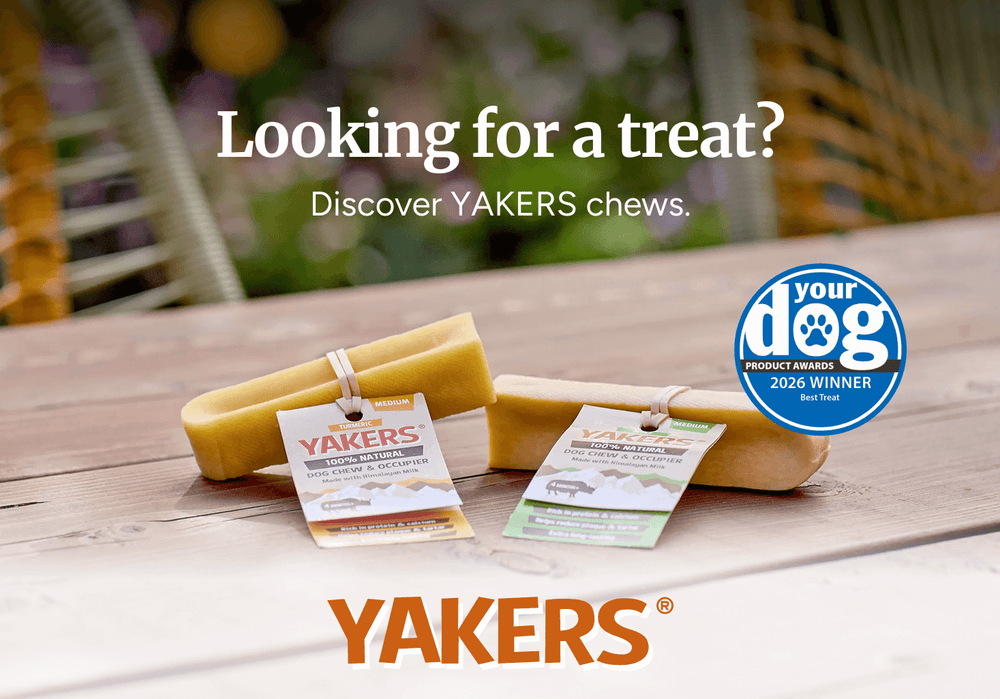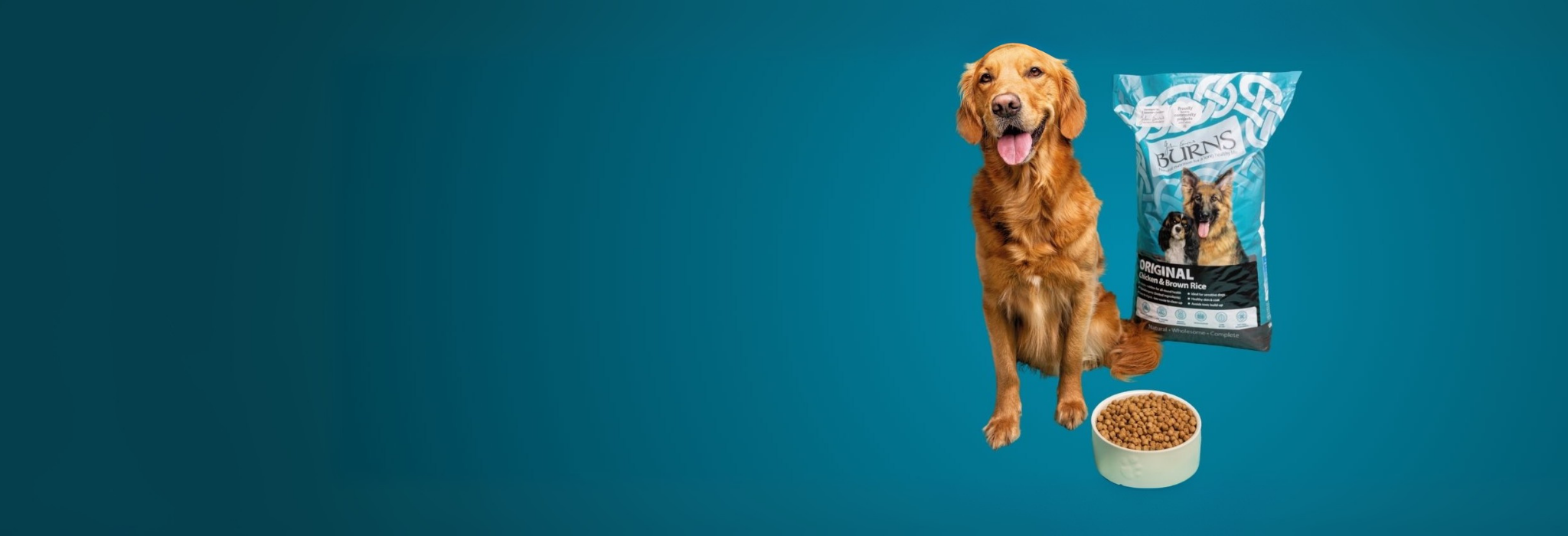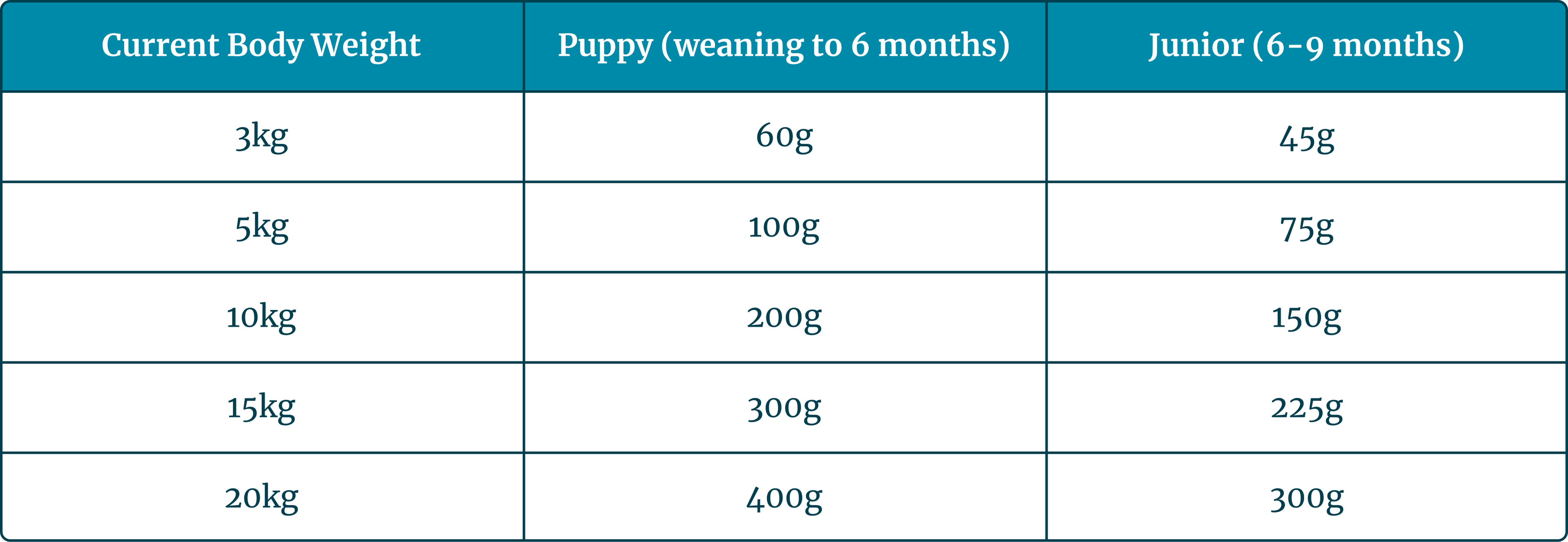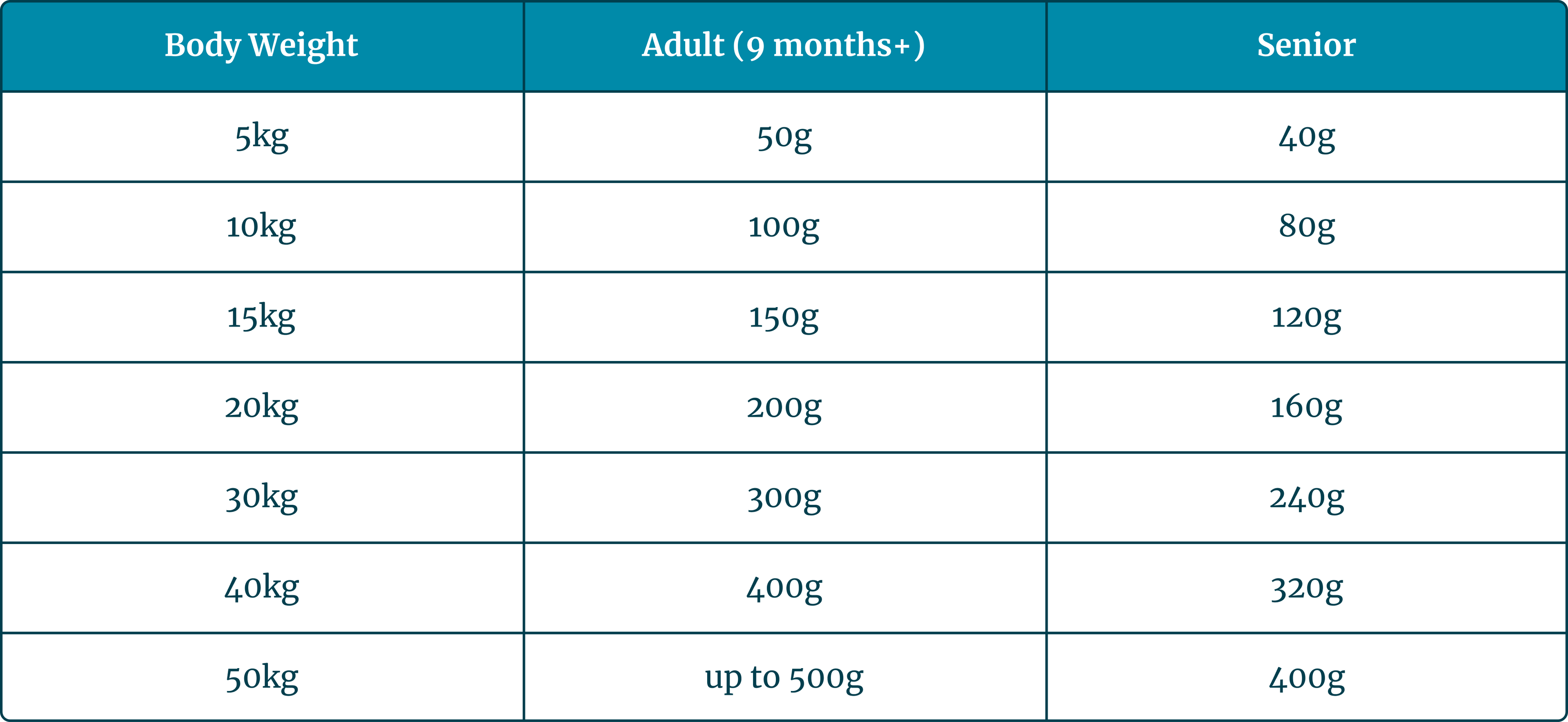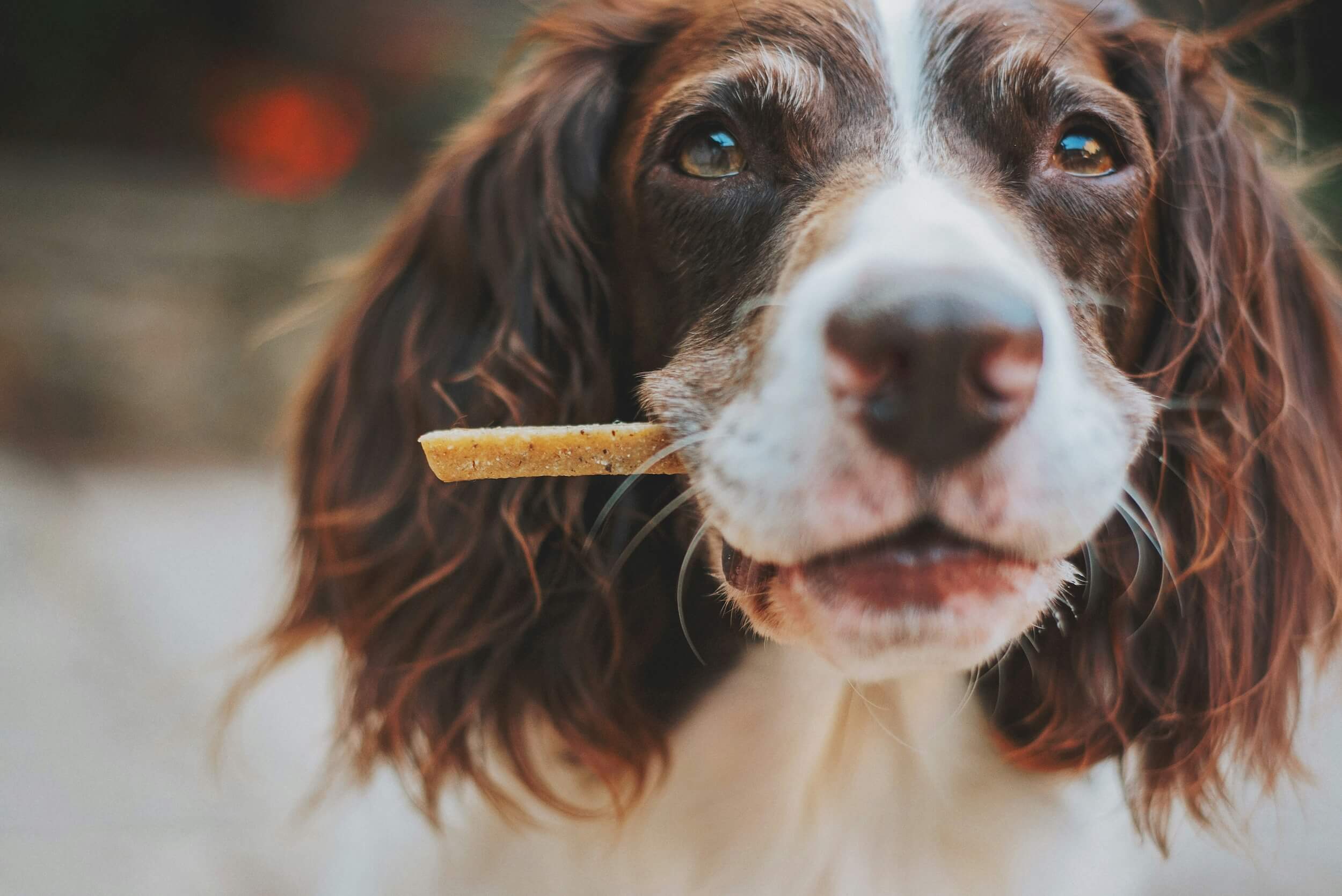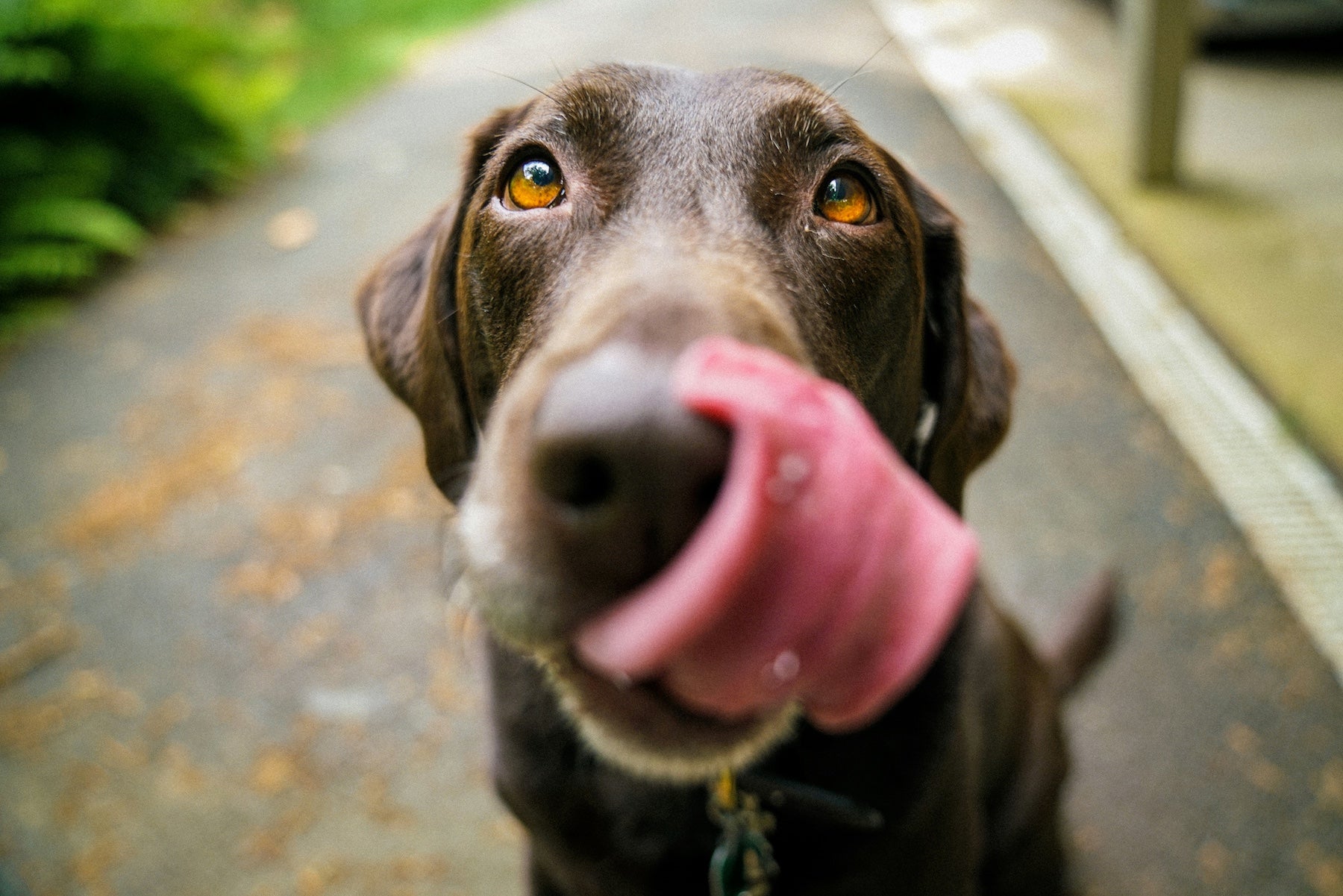How much food does your dog need each day?
Your dog's daily feeding amount will change throughout their life. From puppy through to junior, adult right up to senior, feeding your dog the right amount is all based on their weight, age and breed. Use our handy dog feeding guides below to find the right amount for your beloved pooch no matter their age.

How much do I feed my puppy?
With Burns Puppy/Junior food, we’d recommend feeding twice or three times a day. The amount will depend on their current body weight.
Puppy : 20g per 1kg of body weight per day
Junior : 15g per 1kg of body weight per day
Puppy daily feeding guide:
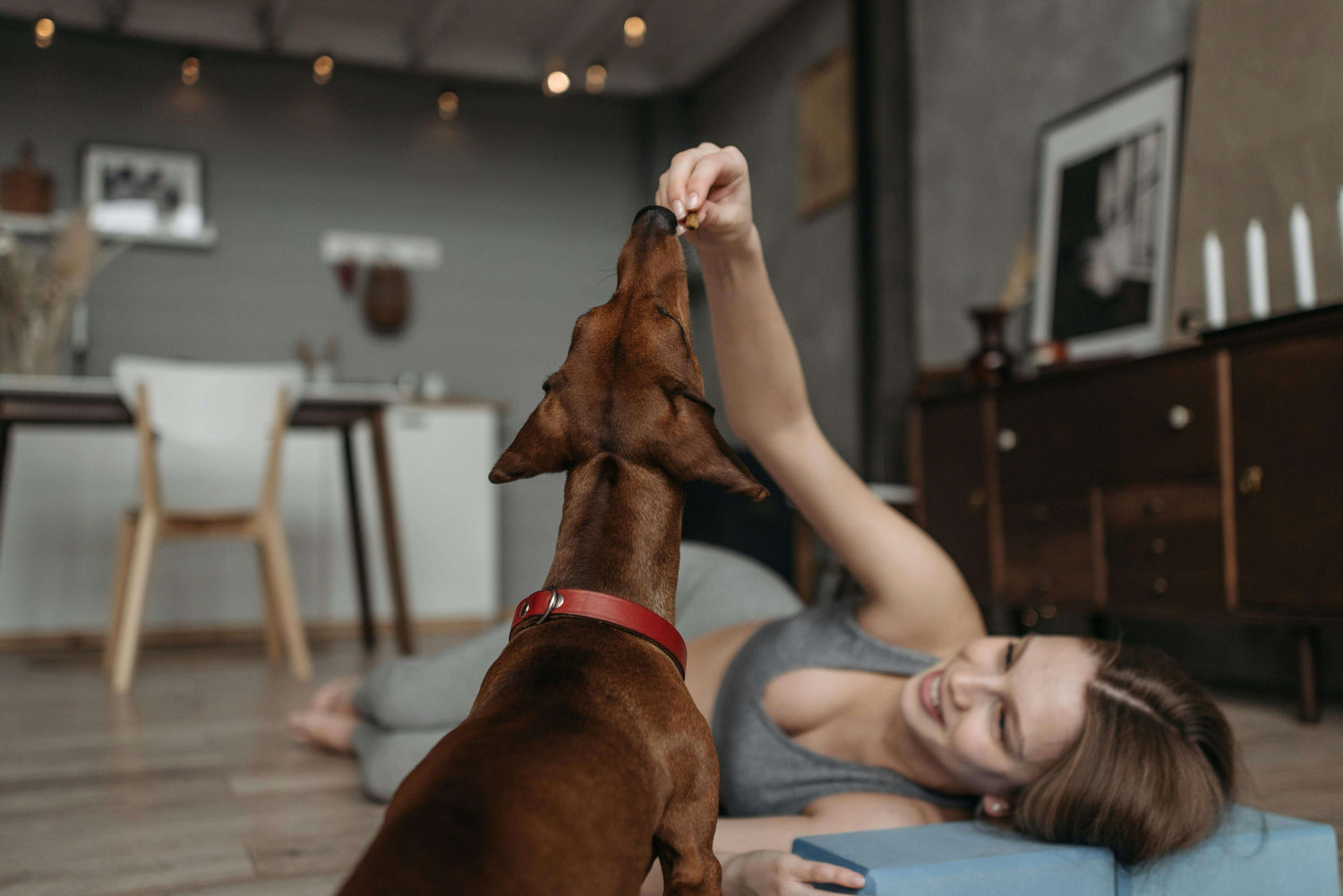
How much do I feed my adult dog?
With Burns Original recipes, we’d recommend feeding once or twice a day. The amount will depend on their current body weight. Alternatively, if they’re overweight, we recommend feeding to their target weight.
Adult : 10g per 1kg of body weight per day
Senior : 8g per 1kg of body weight per day
Adult / senior daily feeding guide:
How much should I feed if my dog is overweight?
If your pet is overweight, base the daily amount on target weight, not actual weight.
Always make sure plenty of fresh water is available for your dog at all times. Being powered by Burns is thirsty work!
